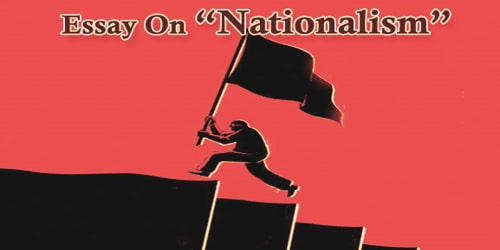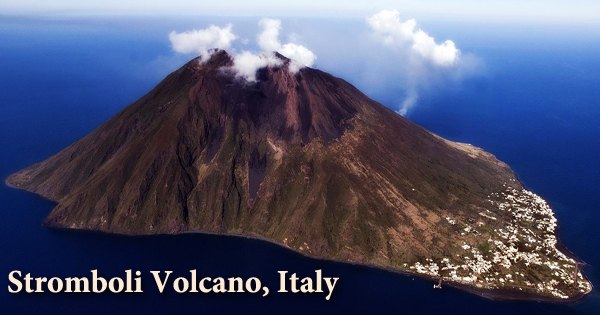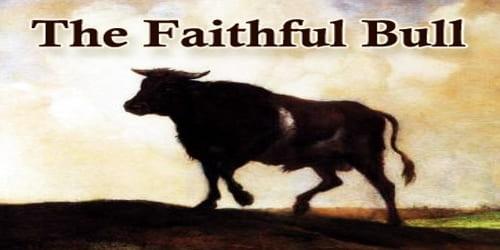Introduction: ‘Nationalism’ is a sense related to the nation. It is a sense of blessing to a country or nation. It is an extreme and pervasive force in the political life of mankind. The word ‘nation’ was also usefully applied before 1800 in Europe to refer to the inhabitants of a country as well as to collective identities that could include shared history, law, language, political rights, religion, and traditions, in a sense more akin to the modern conception. Nationalism is defined as a sentiment of a group of people united together by powerful ties and bonds such as common race, living in the contiguous and well-defined territory, having the same faith, common language and common economy, common pattern in life, common history and a common ideal for future.
Nationalism, as derived from the noun designating ‘nations’, is a newer word; in English, the term dates from 1844, although the concept is older. It became important in the 19th century. The term increasingly became negative in its connotations after 1914. Glenda Sluga notes that “The twentieth century, a time of profound disillusionment with nationalism, was also the great age of globalism.”
The Modern Nature of Nationalism: ‘Nationalism’ is a modern movement. Throughout history people have been attached to their native soil, to the traditions of their parents, and to established territorial authorities, but it was not until the end of the 18th century that nationalism began to be a generally recognized sentiment molding public and private life and one of the great, if not the greatest, single determining factors of modern history. Because of its dynamic vitality and its all-pervading character, nationalism is often thought to be very old; sometimes it is mistakenly regarded as a permanent factor in political behavior.
Actually, the American and French revolutions may be regarded as its first powerful manifestations. After penetrating the new countries of Latin America, it spread in the early 19th century to central Europe and from there, toward the middle of the century, to eastern and southeastern Europe. At the beginning of the 20th century, nationalism flowered in Asia and Africa. Thus, the 19th century has been called the age of nationalism in Europe, while the 20th century witnessed the rise and struggle of powerful national movements throughout Asia and Africa.
Nationalism in Political Science: The concept of nationalism in political science draws from these theoretical foundations. Philosophers like Machiavelli, Locke, Hobbes, and Rousseau conceptualized the state as the result of a “social contract” between rulers and individuals. Weber provides the most commonly used definition of the state, “that human community which successfully lays claim to the monopoly of legitimate physical violence within a certain territory.” According to Benedict Anderson, nations are “Imagined Communities”, or socially constructed institutions.
Many scholars have noted the relationship between state-building, war, and nationalism. Many scholars believe that the development of nationalism in Europe (and subsequently the modern nation-state) was due to the threat of war. “External threats have such a powerful effect on nationalism because people realize in a profound manner that they are under threat because of who they are as a nation; they are forced to recognize that it is only as a nation that they can successfully defeat the threat.” With increased external threats, the state’s extractive capacities increase. Jeffrey Herbst argues that the lack of external threats to countries in Sub-Saharan Africa, post-independence, is linked to weak state nationalism and state capacity. Barry Posen argues that nationalism increases the intensity of war and that states deliberately promote nationalism with the aim of improving their military capabilities.
Nationhood and Sentiment: A group of people united together by such ties, seeks, expressions, and development of groups by collective personalities through an independent political organization of its own. It is a sentiment of nationhood. In reality, it is more than mere sentiment. Originating in the gregarious instinct of man and nourished by the national desire for self-sufficiency, nationalism has in the present century come to be a very dynamically active force in practical politics.
As Lord Morely remarks nationalism, “From instinct became ideas; from idea abstract principles, then derive pre-possessions; ending where it is today in a dogma”. The essence of nationalism is a unifying integrating, all-pervasive feeling among the people or peoples of a country who owe their first and last duty towards the nations.
Self-Determination of Nationalism: Nationalism naturally seeks the right of self-determination. The right has had the effect of encouraging and fostering the freedom of movement in many countries. As a result, new nation-states have emerged all over the world. According to Marxists, nationalism in its present form came in the nation the wake of the Bourgeoisie Democratic Revolution in different countries.
Criticisms of Nationalism: Critics of nationalism have argued that it is often unclear what constitutes a “nation”, or whether a nation is a legitimate unit of political rule. Nationalists hold that the boundaries of a nation and a state should coincide with one another, thus nationalism tends to oppose multiculturalism. It can also lead to conflict when more than one national group finds itself claiming rights to a particular territory or seeking to take control of the state.
Real and Perverted Nationalism: Real nationalism encourages the man to have a strong feeling of language, caste creed, civil rights, etc equally. Perverted nationalism is full of selfishness. It discourages man to have any ill-feeling towards it. True nationalism begets democracy and encourages people to feel political equity, to democratic spirit.
Abraham Lincoln defined democracy,” Govt. of the people by the people and for the people”. Based seriously on the points, the democratic revolution gives birth to the spirit of nationalism. Nationalism developed in the age aiming at the self-sufficiency of nations finds it difficult to maintain its position when the nation is not self-sufficient when it cannot consume all that it produces.
The growth of mammoth industries for the production of capital goods, consumer goods, and war materials has made it necessary for every nation to find out a market where materials can be brought and surplus finished goods may be disposed of for a profit.
The economic motive reinforces the desire for political power and leads to the policy of colonizing the under-developed countries for all possible exploitation. The present-day tendency is to form multinational concerns in developing countries. This is how the whole of Asia and Africa fell under the greed of nationalism of the west and later on of Japan. Nationalism produces what is known as militant or ultra-nationalism.
The evil effect of this perverted form of nationalism is that it creates hostilities between groups, supports militarism retards progress. It provides (produces) a feeling that the laws and civilization of one’s country are superior to those of others and may, therefore, be rightly imposed upon a politically weak and incapable people. It leads in the end to what is called imperialism that shows the seeds of war.
Conclusion: Nationalism is inherently divisive because it highlights perceived differences between people, emphasizing an individual’s identification with their own nation. The idea is also potentially oppressive because it submerges individual identity within a national whole, and gives elites or political leader’s potential opportunities to manipulate or control the masses.
True and real nationalism is based on the ideas of “Live and let live”. It also recognizes the freedom of all nations to preserve their distinct identity of language, and culture. Self-love is not bad so long it does not lead to selfishness. It is only true nationalism which can pave the way for internationalism, the edifice of which can be built only on the basis of mutual trust, belief, goodwill and co-operation among nations.
Information Source:
















